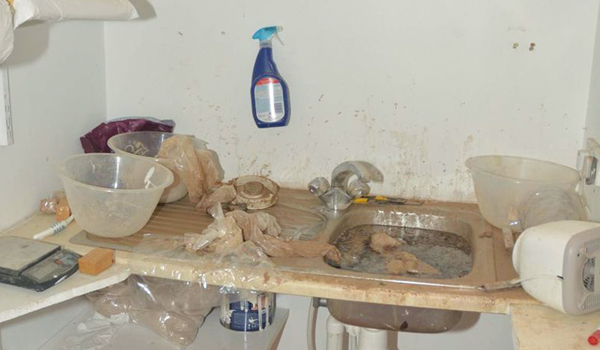Lines of inquiry
County Lines drug dealing is a phenomena receiving considerable law enforcement attention right now, but recent cases and intelligence shows it continues to develop as urban gangs reach out to lucrative markets.
Like many of Britains attractive market towns, Tavistock in West Devon is surrounded by beautiful countryside that offers stunning walks all year round, a thriving local theatre, and more than enough shops, tea houses and restaurants to keep visitors happy. But, like an increasing number of such rural locations across the country, Tavistock was, until relatively recently, also home to a lucrative drugs market, controlled by gangs from in and around the Liverpool area. Last month, Merseyside Police announced that 18 men and two women had been sentenced to more than 192 years after being convicted of conspiracy to supply drugs. Among those sentenced, four were from Newport in South Wales, three from Devon and Cornwall and four from Scotland and all had links to an organised crime group on Merseyside, which was distributing the drugs. Mervin Hyde and his girlfriend Beth Flowers, who both lived in Tavistock, were sentenced to 11 and nine years respectively for their part in the conspiracy just the latest case involving a Merseyside-based County Lines smuggling gang. Detective Superintendent Ken Lamont of Devon and Cornwall Police said the operation centred on the main suspect, Hyde, who was involved in the supply of Class A drugs across North and West Devon. The operation was able to establish a very strong link with Merseyside and an effective liaison and working relationship with their Matrix team enabled this wider conspiracy to be established, which is, I believe, reflected in the evidence secured and the extent of the sentences that have been passed, he added. Hyde was being supplied by a secret drugs factory, accessible only by crawling through a tunnel behind a washing machine at a small flat in Lidderdale Road, Wavertree, which was raided by police last year. There, Lee Halpin and Andrew Worrall were caught mixing 2.5kg of heroin, valued at £250,000. But it was only part of a wider, cross-country trafficking plot, which fed five other gangs in Wales, England and Scotland with an estimated 60kg of drugs. Nicholas Goddard, working with James Hawes, headed a gang in Newport, which received kilos of the drug on a weekly basis. Hyde was in charge of the West Country operation, assisted by his girlfriend and courier Jason Fletcher. Shafiq Ahmed controlled a second supply group in Newport, alongside Jamal Swaby, and received kilo quantities of heroin on a weekly basis from Liverpool. The pair flaunted their profits, making a rap video, which showed them holding huge wads of cash and smiling as they drove around the streets of Wales. In Scotland, Candice Gorman led an outfit in Irvine with Donald Campbell, while father and son John and William Williamson operated out of Perth. The Lidderdale Three Halpin, Worrall and Carl Smyth used a hydraulic press and cut and repackaged off the boat heroin. It was then delivered by their trusted couriers around the country. After they were arrested, Edward Smyth came to the fore in order to fill his brothers shoes. However, the Merseyside criminals continued to direct operations even after they were jailed, using mobile phones smuggled into their prison cells. The sentencing followed an extensive investigation by the Merseyside Police Matrix Serious Organised Crime team. Detective Superintendent Lee Turner, explained: These individuals based on Merseyside expanded their criminal enterprise by setting up a drug supply network in Scotland, Wales and Devon and Cornwall. Our investigations have no borders and we will look to bring all those involved to court regardless of where they live. Liverpool has historically been a major importation and distribution point for drugs arriving into the UK, and gangs in the city have long controlled the supply across Merseyside, as well as seaside towns in North Wales. They have also traditionally had strong links to gangs in Scotland, but in recent years their activities have become even more widespread. Seaside towns, particularly those where large numbers of homes have bee


